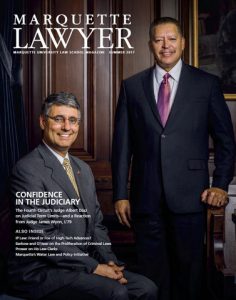Dark Clouds on the Horizon for Graham v. Florida?
 In 2010, the Supreme Court ruled in Graham v. Florida that a juvenile sentenced to life in prison for a nonhomicide crime must be given “some meaningful opportunity to obtain release based on demonstrated maturity and rehabilitation.” But what makes a release opportunity “meaningful”? The Court’s decision yesterday in Virginia v. LeBlanc suggests that the threshold may not be as high as some hoped.
In 2010, the Supreme Court ruled in Graham v. Florida that a juvenile sentenced to life in prison for a nonhomicide crime must be given “some meaningful opportunity to obtain release based on demonstrated maturity and rehabilitation.” But what makes a release opportunity “meaningful”? The Court’s decision yesterday in Virginia v. LeBlanc suggests that the threshold may not be as high as some hoped.
LeBlanc was convicted of committing a rape when he was 16 and sentenced to life in prison without the possibility of conventional parole. On the face of it, this would seem a clear violation of Graham. However, in federal habeas proceedings, the state argued that LeBlanc would eventually have his “meaningful opportunity” through a geriatric release program, which permits the release of some inmates who are age sixty or older.
Since many other states also have geriatric release programs, the issue presented by LeBlanc has important, national ramifications for the strength of the Eighth Amendment right recognized in Graham.
A district judge and then a panel of the Fourth Circuit held in LeBlanc’s favor. The Fourth Circuit noted the highly discretionary nature of geriatric release under Virginia law, which effectively permits the releasing authority to disregard an applicant’s “demonstrated maturity and rehabilitation,” contrary to Graham. 841 F.3d 256, 269 (4th Cir. 2016).
Yet, the Supreme Court reversed yesterday in a brief per curiam opinion.

 Two pairs may not be the most powerful hand in poker, but they are definitely a winning combination for the Summer 2017 edition of Marquette Lawyer, the Marquette Law School magazine.
Two pairs may not be the most powerful hand in poker, but they are definitely a winning combination for the Summer 2017 edition of Marquette Lawyer, the Marquette Law School magazine.